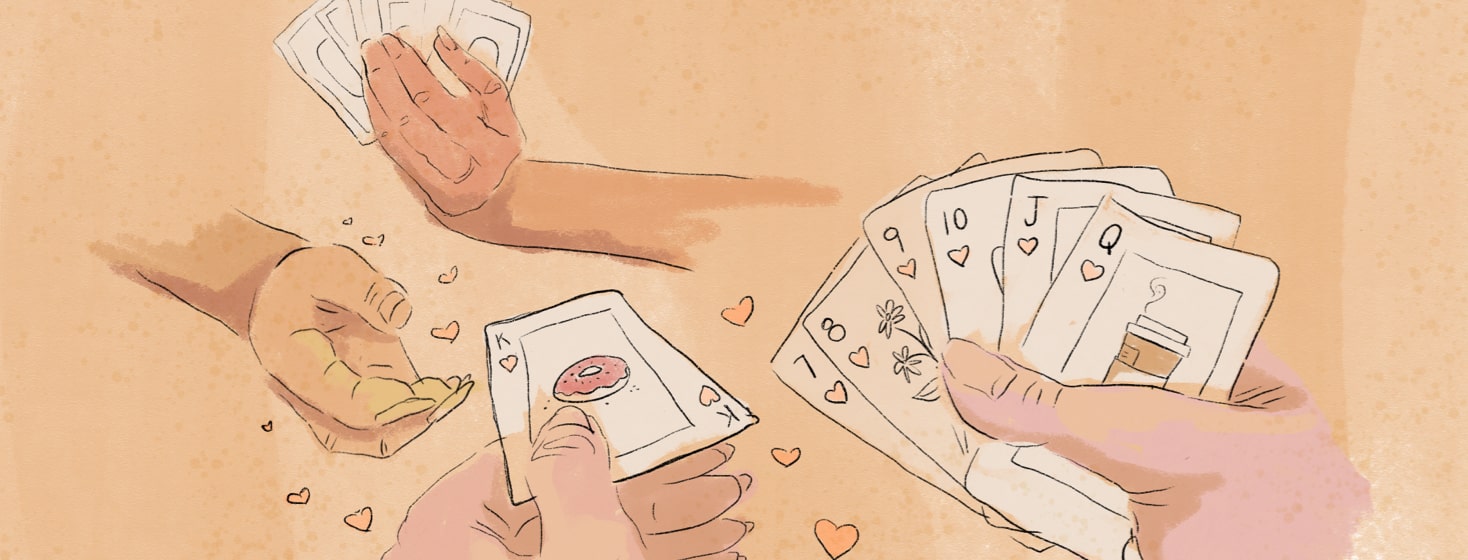Insight From The Other Side of Illness: Knowing How To Be Helpful
A benefit of having had blood cancer, or any serious or life-threatening illness, dawned on me recently.
It comes from having been on the receiving end of needing care and consideration, from being in the position of needing people to do things for you. It comes from being sick and getting a boost from the right kind of pick-me-up.
Before you think, as I might if I read this, that there is NO benefit from being so needy, from lying flat on your back in the hospital as I was, and being so weak when I got out, let’s look ahead to a period when you are better. You know someone needs help and you have this interesting perspective of having “been there,” or thereabouts, and knowing what is helpful and what is not. That is the kind of benefit I’m talking about. I’m thinking about it because I think my perspective has enabled me to help a friend in need. I won’t give any revealing details, but let’s just say that her family has taken hard hits from several directions. Here are three takeaways:
When offering help, be specific!
Don’t say vague and open things such as “Let me know what I can do” and then drift away. Be specific. For example, offer to walk the dog if they have one. Do try to think about what they would like. It doesn’t have to be big. A friend gave me a little wind-up toy car as a reminder to “keep the car on the road.” Not everyone knows a quilter, but I treasured a quilt that a friend from work made. Colleagues signed the white squares and sent good wishes. A little pad of paper in a beautiful backing was nice. So were the earrings that looked good with my bald head.
So how did I apply this to my friend? I was going to New York City, home of the best bagels in the world (or so we native New Yorkers claim) and I said to give me her order for herself and her family and I would bring it back to where we both live. Of course, I wouldn’t let her pay me. This wouldn’t have been a good gift for me when I was sick (because I could barely eat), but I knew it was something they would enjoy.
Good distractions
Think of what a good distraction might be. Note that this might not always be appropriate. You need to know your person. Funny cards made me smile. I don’t know what made me do this, but I thought of a way to make my friend smile. I was in Wellfleet, on Cape Cod, where they, unfortunately, have a huge shark problem. My sister and brother-in-law, who have a house there, have a shark app on their phones. I got kind of obsessed by it. It is the work of the Atlantic White Shark Conservancy, whose mission is education and research. It shows the latest sightings of sharks that have been tagged. I put it on my phone while I was there. They all have names and photos.
I decided to send my friend photos of sharks along with their names. This might not be everyone’s cup of tea (or view of the sea) but I knew she would appreciate it. There was Toothy, and Mr. Frisky, and also Fan Girl and Scarface, and then the number of times they had been seen at each buoy. We both laughed at some of those names.
Be a good listener
Ask if they want to talk and then be a good listener. Maybe say, “I don’t want to prod, but do you want to talk about it?” This may sound obvious, but you would be surprised by how many people don’t get it. By “this,” I mean, don’t say stupid things. There was a time when I was bald and thin and a friend said, “You look like you got out of a concentration camp.” Well, you shouldn’t say that to anyone, and especially don’t say it to someone who is Jewish, like myself, who lost relatives in concentration camps. So if someone shares a diagnosis with you, you can feel out the situation. You don’t want to be overly and obnoxiously bright if not appropriate, but maybe say you know of someone who had that and is doing well. It always helped when my social worker shared stories like that with me.
Do you have any tips, based on your own experience, that you might want to share with others who want to help a friend or relative in need?

Join the conversation